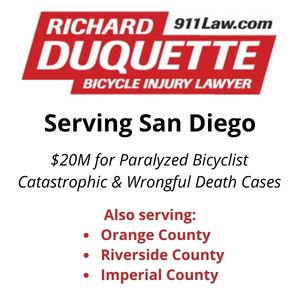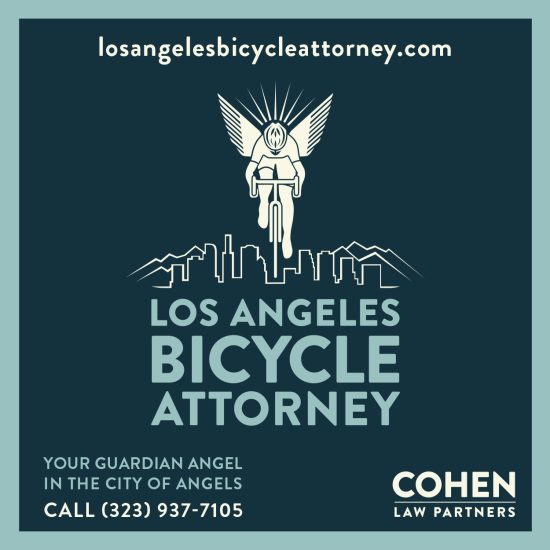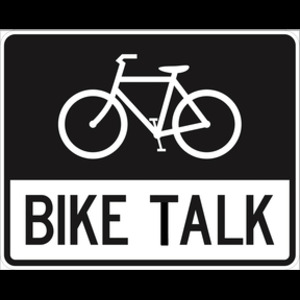Let’s go back to that buzzing incident with the garbage truck, in which the driver honked loudly as he passed me with only about a foot’s clearance.
What if I hadn’t managed to maintain control over my bike when the horn startled me? As I noted yesterday, I could have swerved to the left, which could have meant going under his wheels. Or I might have swerved right, where I would have bounced off the parked cars, and possibly been thrown back underneath him.
So who would be at fault when the police filed their report?
Would it be the driver who passed too closely, honking his horn in a threatening manner, or the cyclist who responded by losing control and colliding with the truck?
Or would they decide it was just one of those things, and no one was really to blame?
Or take today’s ride, when I was nearly right-hooked by a truck driver who passed me on the left, then made a right turn directly across my path — while I was still beside him.
Fortunately, I try to anticipate such things. So I grabbed my brakes, dropped behind him, then passed him on his left before he could even finish his turn.
But what if I hadn’t?
What if I’d collided with the truck? Would he be at fault because he turned into my path? Or would it be my fault because I hit him?
The law suggests the driver should be at fault. Yet when a Baltimore cyclist was killed recently in collision just like that, the police determined that he was at fault — evidently they felt it was his responsibility to somehow avoid the truck that cut him off.
According to the San Francisco Chronicle, Bay Area cyclists are responsible for twice as many bike vs. motor vehicle collisions as drivers are. The same article quotes statistics from the California Highway Patrol, which found cyclists responsible for nearly 60% of all statewide cycling fatalities.
Yet a recent study by a Toronto physician found that cyclists were only responsible for less than 10% of local collisions.
So are Canadian cyclists really that much better than California riders? Or does the problem actually rest with who is analyzing the data — and investigating the accidents?
Do you really have to ask?
The problem isn’t that police hate cyclists, despite common perceptions in the cycling community. It’s that most officers receive little or no training in bike law — and none in the mechanics of cycling or investigation of bike accidents.
That’s not just my opinion. Consider this recent quote from a retired police officer:
In virtually every state, bicycles have most of the same rights and responsibilities as motor vehicle operators. Many officers don’t seem to know, or care, that they do. Training in bicycle traffic law is virtually nonexistent in police academies and crash investigation courses.
Unfortunately, many serious road cyclists know and understand traffic laws regulating bicycles far better than most street cops. Officers who have received quality bike patrol training, such as the IPMBA Police Cyclist™ Course, have been trained in the legal status of bicycles in traffic, proper and legal lane use, and other pertinent provisions.
When investigating a bicycle-vehicle crash, it may be a good idea to involve a trained bike patrol officer to help get a comprehensive perspective as to the bicycle-related factors and conditions involved. Criminal charges may be warranted. An officer knowledgeable in bike law could be a victim cyclist’s best advocate, or a legal opponent, providing the details for fair prosecution.
The simple fact is that the operation and mechanics of bicycles are different from that of motor vehicles. And unless the investigating officer understands that, he or she won’t be able to accurately determine how the collision occurred and who is actually at fault.
Like the infamous downtown Hummer incident, in which the investigating officer concluded that the cyclist hit the SUV, even though the rear of the bike was damaged and the rider was thrown forward — suggesting that he somehow backed into the other vehicle.
Or my own case, when I was struck by a road-raging driver while stopped at a stop sign. Yet the investigating officer chose to accept the driver’s explanation that I had run the stop sign and fallen while making a right hand turn, even though that would have meant falling to the left while leaning into a right turn — something an officer who rides, or who was at least trained in cycling, would have understood was virtually impossible.
Then there’s the fact that in a car/bike collision, the driver is usually unhurt, while the cyclist can be seriously injured or worse. Which means that the police often hear just one side of the story.
Maybe that’s why, in virtually any repot of a collision at a controlled intersection, you’ll hear that the cyclist ran the red light or stop sign — never that the driver ignored the rider’s right of way or ran the signal themselves.
That also could explain why so many drivers involved in hit-from-behind collisions claim that the cyclist darted out in front of them without warning. Never that the driver was distracted or failed to see the rider in the first place.
In fact, many cyclists refer to that type of collision as an SWSS — Single Witness Suicide Swerve — because the frequency of such collisions would suggest that there must be a lot of death-wish cyclists out there.
That’s not to say cyclists are never at fault. I’ve seen enough riders attempt to pull off stupid life-risking stunts — myself included — to know that’s not true.
But the simple fact is, every cyclist is, and will remain, a 2nd class citizen on the streets until all police officers are trained in bike law.
And every bicycle-involved collision is investigated by an officer who understands the physics and realities of cycling.
………
Next year’s LA Bike Tour won’t be held in conjunction with the new Stadium to the Sea L.A. Marathon. Efforts are underway to ban cars from the annual bike-banning Festival of Lights instead. Where do I sign up? Streetsblog notes the anger over new bike lanes in Santa Clarita, where some residents feel ambushed, while others fault the design. Bike thefts are up across the country, including Downtown L.A.; some victims are using social media to get them back, Lance included. Even with the current budget cuts, Elk Grove gets state funding for a new bike overpass. Minnesota artists create bike racks that salute their Scandinavian heritage. Lebron James leads local kids and cyclists in a charity bike ride; so when can we expect the first annual Kobe Bryant Bike Classic? Even bike-friendly Portland suffers from the fatal hit-and-run plague. Cyclists roll by in a Chinatown bike lane as a NY politician holds a press conference to claim no one ever uses it. Finally, an 81-year old Welsh paperboy has his bike stolen while one of his customers thanks him with a piano recital.






The hummer incident was not a matter of bias. It was corruption and collusion, pure and simple. Officer Cho lied when he said there was a license plate on the Hummer. Pictures prove there was not.
That was collusion to cover up an attempted murder.
I’m dealing with some of this right now… was hit Tuesday and everyone assumes I ran a stop sign, but I was stopped for the same cross traffic as the guy who turned left and hit me when I crossed. Fortunately I’m just a bit sore but I don’t know how lucky I will be to get his insurance to cover my bike with the bent frame.
Parties involved in a traffic collision are found at fault by the police officer in a report. It is his opinion based on statements & physical evidence. Once the matter is in the hands of an insurance company a decision is made in percentages of fault by each party. Each crash is complex and at times they are not thoroughly investigated unless there are injuries. It’s my hope that officers give a fair investigation and come to the correct conclusion in all traffic collisions.
Thank you very much for your help, this has been a great respite from the books,
Good comment Eric This is what should happen but it is hard without concrete evidence.